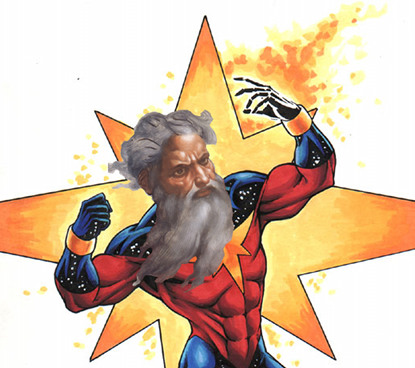 To be omnipotent, Baber says, “is to be able to do [directly, by fiat] any action… including actions at times other than” the time at which one is omnipotent. (p.6)
To be omnipotent, Baber says, “is to be able to do [directly, by fiat] any action… including actions at times other than” the time at which one is omnipotent. (p.6)But, if I follow her compressed reasoning here (p.7), the reasoning just given is mistaken. God is, at any time, able to bring about anything at that time. He’s able to do this because of his temporal part (e.g. the Father) which exists at any given time. (Or if we’re talking about stretches of time, it could be 2-3 parts.) But each God-temporal-part is also omnipotent, in that for all its career, it can do any action, at the earlier or later gods which count as the same god as it, have the same sort of power during their careers. So, take the Son. He’s omnipotent, because (1) during his life he can do any action, (2) at times later than his life, the Holy Spirit can do any action, and the Holy Spirit counts as the continuing existence of the Son, and for parallel reasons, (3) before the Son’s life, he ought to be thought of as pre-existing as the Father, who during all of his career, could do any action. “The Persons, therefore, are as omnipotent… as [God] is.” (p.9) Thus, she holds, her third condition is satisfied – each of the Persons is wholly divine.
Next time: But is the Trinity God?
